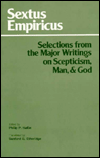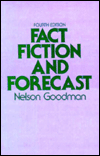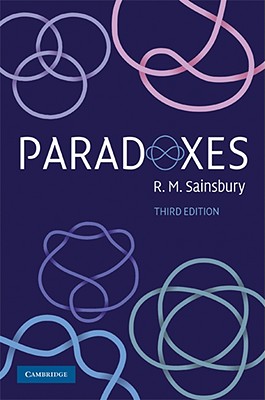Philosophy 329: Skepticism
Syllabus
Syllabus: Skepticism
PHIL 329 - DR. KEITH KORCZ - FALL 2011
How To Reach Professor Keith Korcz:
My office is in H. L. Griffin Hall, rm. 563. My office hours are MW 12:00 - 1:00 and 2:30 - 4:00, F 12:00-1:00 and TTh 12:00 - 2:00. We can also meet at other times by arrangement - just ask. My office phone no. is 482-6806. You can also contact me (or ask questions) by e-mail at keithk@louisiana.edu.
Required Texts:
1. Sextus Empiricus, Selections From The Major Writings on Scepticism, Man and God, ed. by Philip P. Hallie, (Hackett, 1985). 2. Nelson Goodman, Fact, Fiction and Forecast, Fourth Ed., (Harvard University Press, 1983).
[you can read an obituary of Nelson Goodman here]5. Course Pack (on reserve at the Dupre Library Reserve Desk).
3. Keith DeRose and Ted A. Warfield, Skepticism: A Contemporary Reader, (Oxford University Press, 1999). 4. R. M. Sainsbury, Paradoxes, Third Ed., (Cambridge University Press, 2009).
Course Content:
Philosophical discussion of whether we really know what we think we know has been around at least since the fifth century BCE and has continued to the present day. Even as the aims and methods of philosophers have changed and developed radically over 2,500 years, the same sorts of questions about knowledge keep arising. A few years ago, discussion of these issues hit popular culture as a result of the movie The Matrix, which was based on a skeptical scenario of the sort philosophers have discussed for at least the last 400 years. The aim of this class is to provide a survey of these questions and attempts to answer them.
Assignments & Grading:
There will be two take-home exams during the semester, each worth 20% of your course grade, and a cumulative take-home final exam worth 25% of your course grade. The term paper will be done in successive drafts, the first draft being worth 10% of your course grade and the final draft being worth 25% of your course grade. The exams will cover both lectures and assigned readings (material in lectures and assigned readings will not always overlap). The paper must be at least 12-15 pages in length, and will be described in more detail on a separate handout. There may also be some opportunities for extra-credit points
The letter grades will be assigned according to the standard scale, i.e. 90-100% = A, 80-89% = B, 70-79% = C, 60-69% = D, 59% and below = F, and then may be modified as follows: Course grades might be curved, but, if so, the curve would not be such that any student's grade is lowered. Such factors as improvement over the length of the course, attendance, etc. may be taken into consideration, especially where doing so may improve a borderline grade. You must complete all course assignments (namely all three exams and both drafts of the paper) to receive a passing grade for the course (i.e., a grade other than F, NC or U).
Class Policies:
If you miss class, for whatever reason, it is your responsibility to get class notes from another student. Missed exams or other assignments can be made up only if an appropriate excuse, e.g., illness requiring medical attention, participation in certain official university events, etc., is provided. If you miss an assignment due date, you must notify me within one week of either the due date or the cessation of a medically documented persistent vegetative state in order to make up the assignment. An unexcused late assignment will be dropped 2/3 of a letter grade per day it is late. If you have a disability and require assistance with fulfilling class assignments, don't hesitate to notify the instructor and the Office of Disability Services at 482-5252. Finally, be sure you are familiar with all university policies described in the UL Lafayette Undergraduate Bulletin. All assignments for this class must be completed individually, and any instance of academic dishonesty on any assignment will be sufficient to fail the course.
Internet Resources:
I strongly recommend taking advantage of the following resources I have created for you!
The course home page contains some useful links as well as an on-line syllabus with links to many of the readings and author's home pages. The URL address is: http://www.ucs.louisiana.edu/~kak7409/329SkepticismHome.html
My How To Survive Your First Philosophy Course pages contain useful information about what I look for when grading papers, how to study for my exams, reading philosophy, taking notes, doing research in philosophy, etc. The URL address is: http://www.ucs.louisiana.edu/~kak7409/Survival.html.
The best Internet resource for theory of knowledge is The Epistemology Research Guide at http://www.ucs.louisiana.edu/~kak7409/EpistemologicalResearch.htm. It contains links to over 1,200 papers in contemporary epistemology freely available on-line and other resources.
Emergency Evacuation Procedures:
A map of this floor is posted near the elevator marking the evacuation route and the Designated Rescue Area. This is an area where emergency service personnel will go first to look for individuals who need assistance in exiting the building. Students who may need assistance should identify themselves to the teaching faculty.
Course Calendar Planned Reading Assignments*
You should complete each of the readings before they are discussed in class. Some of the readings are difficult, and you may find that you need to re-read them after they have been discussed in class in order to fully understand them.
P = Paradoxes
SE = Selections from the Major Writings on Scepticism, Man and God
FF = Fact, Fiction and Forecast
S = Skepticism: A Contemporary Reader
CP = Course Packet
NOTE: Additional material in [straight brackets] is NOT required reading. Links to pages by or about authors is also optional. Only the works in (parentheses) are required reading. Readings noted with [via JSTOR] must be accessed via a UL Lafayette internet connection.
Topic 1. Ancient Paradoxes & The First Skeptic (5th - 4th Century BCE)
a. Zeno's Paradoxes (P, Chapter 1), [You can read ancient descriptions of Zeno's paradoxes on-line]Monday, September 5 - Labor Day - No Classes
b. Sorites (P, chapter 3).
c. Xenophanes (no readings).
Topic 2. Early Skepticism (4th Century BCE - 2nd Century CE)
a. Overview (SE, Introduction).
b. Pyrrho (CP, "Selections from Lives of Eminent Philosophers" by Diogenes Laertius). [The section about Timon is on-line, as is the complete section on Pyrhho.]
c. The Academics (CP, "Selections from Academica" by Cicero) [The entire text of Academica is available on-line.].
d. Sextus Empiricus (SE, p. 29-128). [Outlines of Pyrhonnism, Book I, is available on-line.]
October 17 – Advising for SP12 begins.
Thursday, Oct 20 and Friday, Oct. 21 - Fall Holiday - No Classes.
Topic 3. Skepticism and the Modern Era (16th Century CE - 18th Century CE)
a. The Enlightenment Revival (CP, "Man Can Have No Knowledge" by Michel De Montaigne and "That Nothing Is Known" by Francisco Sanches).
b. A Rationalist Response (CP, "Skepticism, Morality and The Matrix" by Gerald Erion and Barry Smith; "Meditations I - III" by Rene Descartes) [See his action figure.].
c. An Empiricist Response (CP: "Of the Idea of Necessary Connexion" [Book I of Hume's Treatise, from which this selection is taken, is available on-line.] by David Hume). [See his action figure.]
Topic 4. 20th Century Reactions to Skeptical Arguments
a. Overview (S, Chapter 1, "Introduction: Responding to Skepticism" by Keith DeRose).
b. The Problem of the Criterion (CP, "The Problem of the Criterion" by Roderick Chisholm).
c. The Commonsense Thread (CP, "Hume's Theory Examined" by G. E. Moore).
d. The Fallibilism Thread (CP, John Hawthorne, "Introducing the Puzzle").
e. The Closure Thread (S, Chapter 10, "Philosophical Explanations" by Robert Nozick).
f. The Induction Thread.
1. The Humean Problem (FF, p. 59-66).g. The Analyticity/ Naturalization Thread.
2. The Gruesome Problem (FF, p. 66-124).
3. Paradoxes of Confirmation (P, p. 90-106).
1. Kant's Reply to Hume (CP, "The Impossibility of a Sceptical Satisfaction..." and "Introduction" by Immanuel Kant). [See his action figure.]
2. Quine's Reply to Kant (CP, "Two Dogmas of Empiricism" by W. V. O. Quine). [See his action figure.]
3. Naturalized/Externalist Epistemologies (S, Chapter 7, "Process Reliabilism and Cartesian Skepticism" [via JSTOR] by Christopher Hill).
Topic 5. New Directions
a. Semantic Externalism (S, Chapter 2, "Brains in a Vat" by Hilary Putnam and Chapter 5, "A Priori Knowledge of the World: Knowing the World by Knowing Our Minds" by Ted A. Warfield).
b. Relevant Alternatives (S, Chapter 8, "Epistemic Operators" [via JSTOR] by Fred Dretske).
c. Contextualism (S, Chapter 11, "Solving the Skeptical Problem" [via JSTOR] by Keith DeRose).
Thursday, Nov. 24 through Friday, Nov. 25 – Thanksgiving Holiday - No Classes.
Topic 6. More Fun With Paradoxes
a. Russell & The Liar (P, Chapter 6, "Classes & Truth").
b. Dialethism (P, Chapter 7, "Are Any Contradictions Acceptable?").
LAST DAY OF CLASSES: FRIDAY, DEC. 2
FINAL EXAM: TUESDAY, DECEMBER 6, 2:00PM – 4:30PM.
*NOTE: Readings, assignments and due dates are tentative and may be changed.




